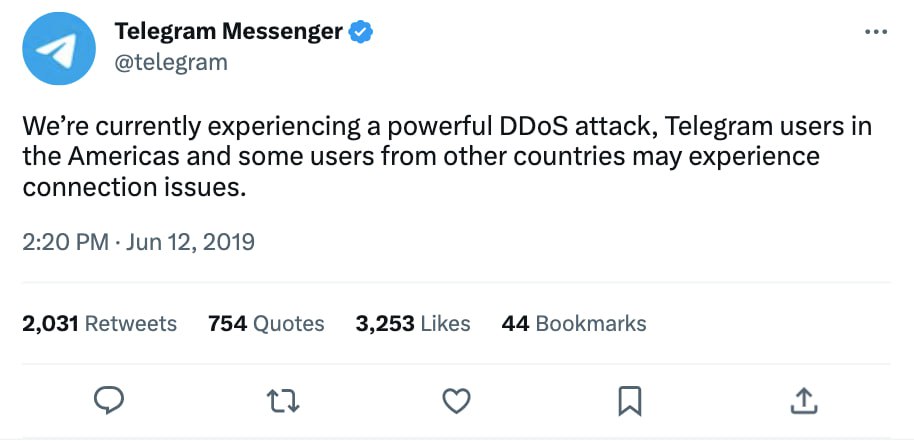Is Telegram truly secure?
Launched in 2013, Telegram gained fame for its reputation as a secure and anonymous messaging app. With a staggering monthly user base of over 700 million and a remarkable 230% surge in popularity since 2019, Telegram has even become the app of choice in the Ukrainian conflict. But if you prioritize your privacy, you may be wondering if the hype around Telegram's security is warranted.
In an era where online platforms like WhatsApp, WeChat, Facebook, and Instagram are often criticized for data collection and storage, the burning question remains: Is Telegram truly secure? Let's delve into the details to find out.

How safe is Telegram?
Indeed, Telegram is much safer than many other messaging applications out there. Why? There are three primary reasons for this distinction.
- Message Encryption: Telegram encrypts your messages, although not all of them (we'll delve deeper into this shortly). Message encryption is a critical component of any privacy-focused communication tool, and regrettably, many messengers fall short in this regard.
- Online Safety Features: Telegram offers a range of online safety features, including secret chats, security protocols, and additional privacy measures, which we'll discuss in detail shortly.
- Independence: Unlike WhatsApp and Messenger, which are owned by Facebook, a corporation known for its extensive data collection, Telegram is less influenced by political and marketing forces.
Nonetheless, it's crucial to acknowledge that Telegram isn’t 100% safe. It also has its flaws and vulnerabilities we will explore later on. For now, let’s dive deeper into the most significant security features this messaging service brings to the table.
Main Telegram safety features
As previously mentioned, Telegram offers several security features to safeguard users' communication. But how effective are these measures? Let's closely examine them to gain a comprehensive understanding.
Telegram encryption
End-to-end encryption is the ultimate protection of your online communications. When you send a message, it is transformed into gibberish text to prevent anyone, including the service itself, from accessing and reading it. Only the sender and the receiver of the message can decrypt it. But is Telegram end-to-end encrypted?
Unfortunately, Telegram doesn’t provide end-to-end encryption for common private and group chats. It means that the service stores (and, accordingly, can access) your messages. However, it provides a secret chat feature. Such chats are fully encrypted, and Telegram doesn’t store them on its servers.
Note that messages you send via a secret chat aren’t stored in the cloud, as well. So you can only access them from the device where you started such a chat.
MTProto security protocol
MTProto is a security protocol specifically designed for Telegram, enabling access to the server API on mobile devices. Although not without flaws, MTProto underwent updates, including MTProto 2.0 in 2017, which addressed significant vulnerabilities discovered by cybersecurity experts. However, a key issue is that MTProto is not open-source, unlike the rest of Telegram's code. Consequently, third-party developers cannot easily identify and rectify protocol weaknesses.
Customers’ privacy
Telegram claims to treat users’ privacy seriously following two fundamental principles when collecting user data:
- They do not employ user data for targeted advertising.
- They only store data essential for Telegram's functionality.
Moreover, Telegram refrains from sharing personal data with third-party data centers and minimizes data storage over time. Despite these safeguards, some user information is retained on Telegram's servers.
Telegram privacy concerns
Now, it's time to weigh the privacy-related concerns and data storage practices against the benefits Telegram offers.
Data collection
Telegram gathers and retains specific user data, including IP addresses, usernames, phone numbers, contact information, and device details. According to their Privacy Policy, this information is essential for the app's functionality, and it's retained for up to a year. But does this data collection present any cybersecurity risks?
First and foremost, the data stored on Telegram servers, including your IP, could be at risk in the event of a data breach. Additionally, the app's ability to access your contact list may raise concerns; some speculate that Telegram can scan phone numbers and names on your list before you even create an account. However, you can manage the app's access to your information through your smartphone's privacy and security settings.
Illicit activities
Apart from being famous for its high-level encryption and security, Telegram has a somewhat controversial reputation. The problem is that malicious actors, hackers, and illegal organizations can take advantage of private communication via Telegram to conduct unlawful activities. Due to end-to-end encryption, it’s more challenging for police and other authorities to track cybercriminals operating in Telegram groups (which, by the way, may consist of up to 200,000 members). In other words, Telegram has become the dark web in the world of messaging applications.
Here are just a few examples of illegal activities associated with Telegram.
- Phishing. Threat actors can generate and distribute suspicious links using Telegram bots.
- Financial and crypto fraud. Notably, Business Insider reported numerous pump-and-dump crypto scams organized within large Telegram groups.
- Hacking channels. Recent research suggests that many cybercriminals are transitioning from shady forums to end-to-end encrypted messengers like Telegram, which offer better protection and ease of use.
- Drug trafficking. According to recent reports, drug dealers worldwide exploit Telegram's anonymity to conceal their activities and communicate with customers.
- Terrorism and extremism. Several extremist groups, including ISIS and Hamas, have been known to use encrypted messengers like Telegram to recruit members, incite violence, and raise funds. It's worth mentioning that in 2019, Telegram assisted Europol in removing numerous accounts disseminating Islamic State propaganda via the platform.
Data breach risk
Despite the security measures touted by Telegram, data stored on the platform may still be vulnerable to cyberattacks, as history has shown. Here are a couple of noteworthy instances:
- In June 2019, a substantial distributed denial-of-service (DDoS) attack targeted Telegram users in the US and Hong Kong. Pavel Durov, the founder of Telegram, even suggested that the Chinese government might have been responsible for the attack.

- In 2020, a group of unidentified hackers exposed approximately 900 MB of Telegram users' personal details on obscure online forums. This compromised information included phone numbers, names, and unique profile identifiers (still, researchers said most of that data was either outdated or irrelevant).
Now that you're aware of the potential privacy concerns associated with Telegram, let's explore steps to protect yourself from possible threats.
So, How To Boost Your Telegram Privacy And Security
To ensure your privacy and security while communicating through Telegram, consider these straightforward measures:
- Use secret chats to encrypt your messages. Encrypt your messages by using Telegram's Secret Chats feature. These are the only chats with end-to-end encryption on the platform, guaranteeing the privacy of your confidential conversations.
- Adjust your privacy settings. You can change your Telegram settings to limit the information other users can learn about you. Just head to Telegram > Settings > Privacy and Security. This way, you can hide your phone number, profile photos, forwarded messages, and more.
- Use the Auto-Delete messages feature. This feature allows you to schedule the deletion of messages you've sent, particularly useful for safeguarding sensitive content from prying eyes.
- Enable two-factor authentication. Add an extra layer of security to your Telegram account. To enable this, go to Telegram > Settings > Privacy and Security, enable Two-Step Verification, and create a robust password. Consider adding a hint and a recovery email to bolster security.
- Log in to Telegram with another phone number. Sign up for Telegram with an additional SIM card, which shields your primary phone number from potential exposure to hackers or third parties. You can further hide your phone number within the Telegram Privacy and Security settings by selecting "Nobody" under "Who can see my phone number?"
- Use a virtual private network (VPN). For an added security layer, install a trustworthy VPN on your device. A VPN conceals your IP address and replaces it with an alternate one, thwarting Telegram and other services from accessing your actual IP. Additionally, a VPN offers protection against a spectrum of cyber threats, from phishing schemes and malicious links to malware and DDoS attacks.
So, how secure is the Telegram app, after all?
All in all, Telegram is a reasonably secure messaging application, particularly when used with care. It offers encryption within secret chats and provides robust privacy and security settings. Nonetheless, certain risks are associated with Telegram, necessitating extra precautions. Here, SYSVPN emerges as a top-notch choice, offering a reputable VPN service equipped with a suite of potent features to shield you from cyber threats.



